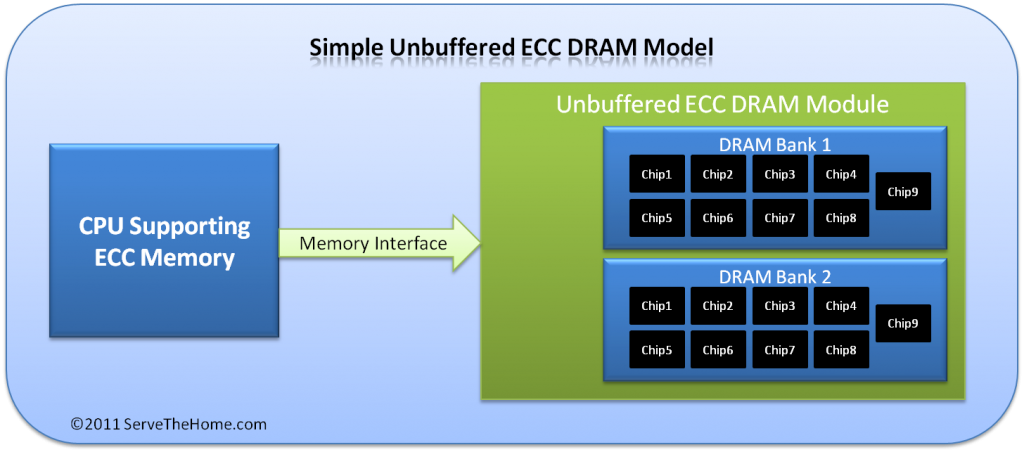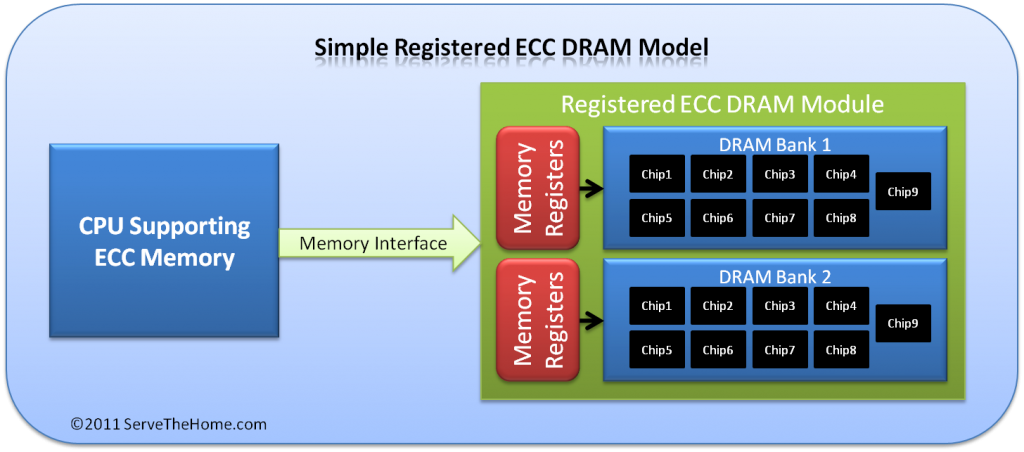systems:memory
Unbuffered versus Registered ECC Memory – Difference between ECC UDIMMs and RDIMMs
From: https://www.servethehome.com/unbuffered-registered-ecc-memory-difference-ecc-udimms-rdimms/
Error Checking and Correction (ECC) memory is mostly considered essential in enterprise environments these days. Single bit error checking and correction within an 8-bit byte allows for single bit errors to be both detected and corrected when they occur. Interestingly enough, the way this single bit ECC works is not all that unlike RAID 4 and RAID 5 where an XOR algorithm is used to generate parity bits. Instead of losing usable memory capacity, memory makers tend to add an additional chip to ECC memory for every eight storage chips. When a single bit error is detected, the parity information is used to reconstruct the data with an error. Again, this is conceptually similar to how RAID 4 and RAID 5 can scrub and fix data errors in storage arrays. Larger errors than multi-bit can be detected but not corrected by the single bit ECC type of parity scheme.
systems/memory.txt · Last modified: 2017/08/02 02:50 by superwizard


